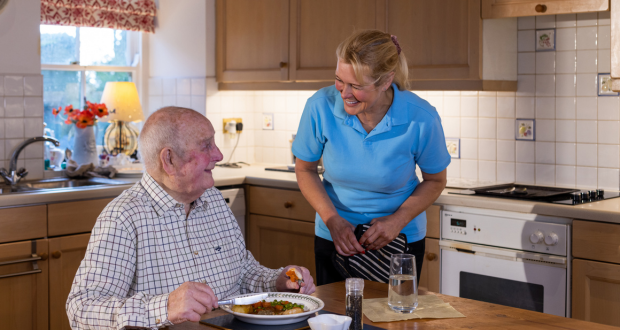The aged care taskforce has rejected the idea of a levy to cover the sector's costs and has recommended older Australians accessing care should pay more based on their personal wealth.
The federal government established a taskforce last year to find a long-term solution for sustainable aged care funding.
A total of $23.6bn was spent on aged care in 2020-21, which increased to $24.8bn in 2021-22 and $27.1bn in 2022-23.
By 2026-27, with the older population expected to triple, aged care expenditure is expected to reach $42bn.
Currently, the government funds 75 per cent of residential aged care and 95 per cent of home care, with the taskforce report stating it was "not an optimal or fair mix".
Aged care levy not recommended
Despite suggestions from the Aged Care Royal Commission and industry experts to introduce an aged care levy of one per cent of a person's taxable income, the report did not make the same recommendation.
The taskforce also dismissed an increase to the Goods and Services Tax.
"While the taskforce supports the government maintaining its central role in funding aged care, it does not support a specific increase to tax rates to fund future rises to aged care funding," the report said.
The report also said asking a shrinking working-age population to fund aged care services would create issues with equity.
Aged Care Minister Anika Wells backed the report and agreed that a levy would create a "genuine intergenerational equity issue".
Wealth-based funding to fund aged care
One recommendation made was to make aged care fees "fairer, simpler and more transparent so people can understand the costs they will incur if they access aged care".
The report made a strong argument for raising the contribution levels for care among those with the financial capability to do so. However, it did not specify the metrics for assessment or the timeline for implementing such changes.
It proposed that assessing financial contributions to aged care services based on age pension status could be a fair approach.
Earlier in the year, Prime Minister Anthony Albanese said the government was not considering any changes to the treatment of the family home in the aged care asset test.
However, one of the recommendations suggested that "home ownership status" could be taken into consideration when determining an individual's contribution for residential aged care, and for non-pensioners "differential means testing arrangements based on Commonwealth Seniors Health Card status".
Workforce attraction and retention 'out of taskforce scope'
The aged care sector is grappling with staffing concerns, lack of a skilled workforce, and retention problems.
Figures from the Department of Health and Aged Care show that residential aged care faced a gap of 5,918 nurses by 2024-25, with the sector racing to comply with the increase of care minutes by October 1.
The taskforce report mentioned workforce concerns multiple times, and recommended having a competent and proficient workforce as one of its main principles.
However, addressing the issue was beyond the scope of the review.
As a result, no recommendations were provided on how to resolve the problem.
The taskforce acknowledged ongoing discussions regarding concerns over workforce shortages within the aged care sector.
However, it also highlighted a positive development stemming from the recent increase in minimum wages, which had positively impacted some aged care employees.
Government response
The government said it would consider all the taskforce report recommendations.
A clear timeline has not been determined; however, experts are worried as the new Aged Care Act is due to be released on July 1.
The taskforce report was initially scheduled to be released in January, with Ms Wells stating it was "complicated, dense, complex work".
"We [the government] received the report at the end of December and have been steadily working on what our response might look like since then," she said.
"We need, I think, bipartisan support. Firstly, I think that's what people expect of political parties; for something as important as aged care, we should be able to work in a cooperative manner and set something down that is structurally sound and that improves care.
Do you have an idea for a story?Email [email protected]
 Aged Care Insite Australia's number one aged care news source
Aged Care Insite Australia's number one aged care news source

